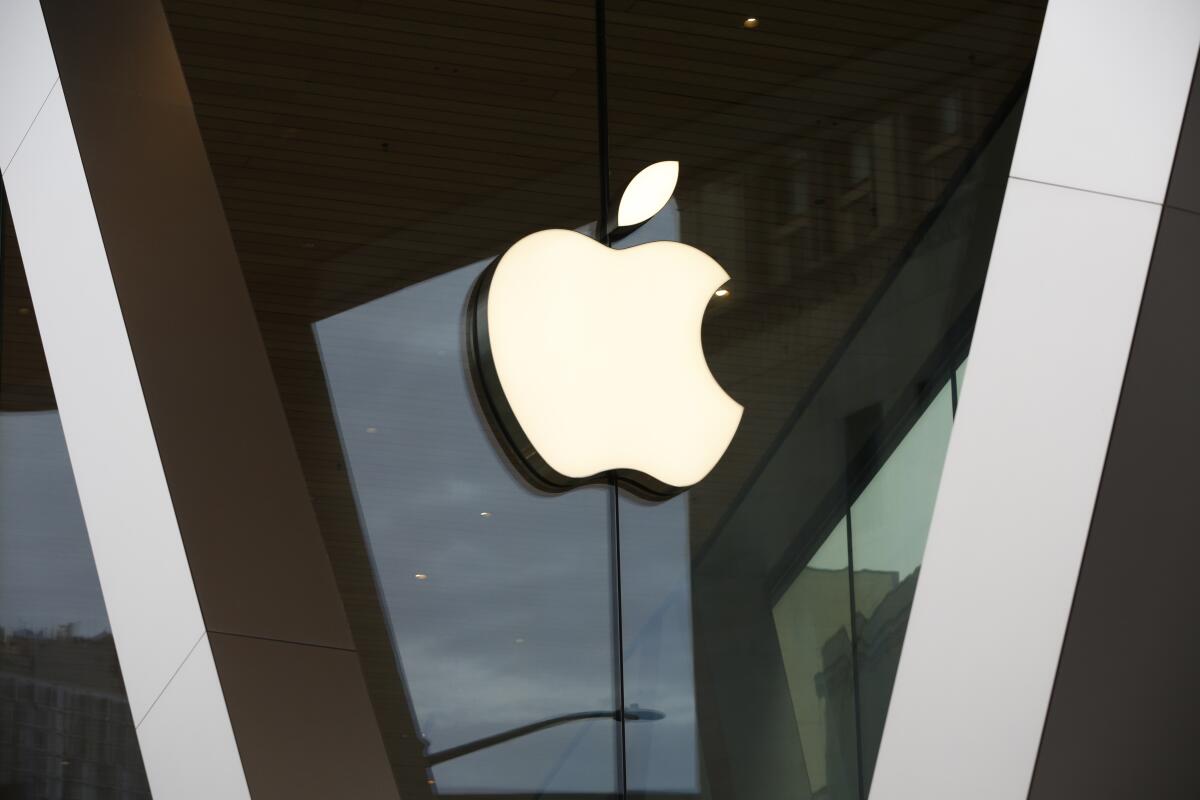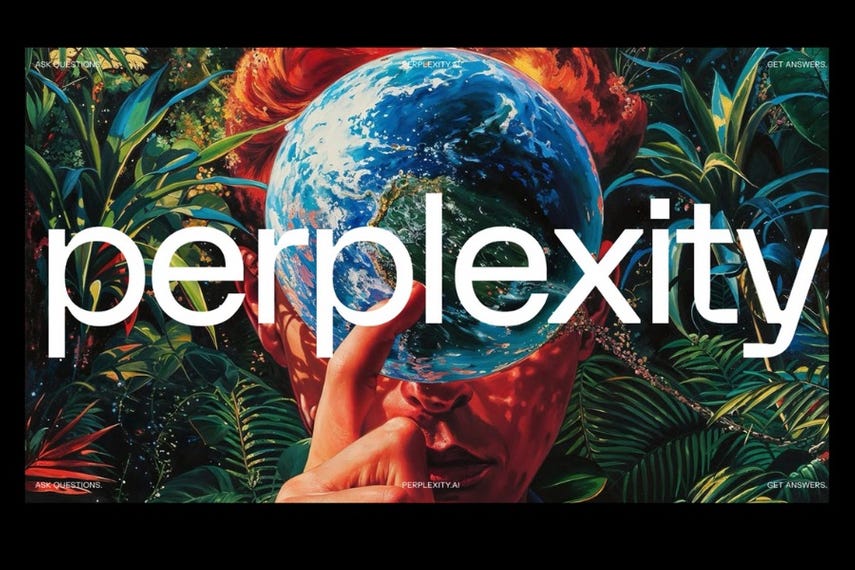Comet vs Chrome: How Perplexity’s Agentic Browser Challenges Google’s Decade of Dominance
Introduction: A New Era of Browsing
The web browser—arguably the most used software in human history—has remained structurally unchanged for over two decades. Since Chrome’s debut in 2008, browsers have been fast, stable, and extensible—but fundamentally passive. They display the web. You do the work.
Perplexity AI’s Comet, launched globally on October 2, 2025, aims to overturn that paradigm. Built atop Google’s own Chromium foundation, it doesn’t just load pages—it reads them, thinks about them, and increasingly, acts on your behalf. Comet represents the world’s first “agentic” browser—a shift from “search and click” to “ask and act.”
This article examines the key differences between Perplexity’s Comet and Google’s Chrome, not only in features but in philosophy—and explores what this means for the future of browsing, productivity, and AI-human interaction.
1. Shared DNA, Divergent Destiny
Both Comet and Chrome are Chromium-based, meaning they share the same underlying rendering engine and performance foundations. This ensures that websites look and behave identically on both platforms—extensions, keyboard shortcuts, and even the familiar tab layout all work the same.
But from there, they diverge sharply.
-
Chrome was designed as a minimalist vessel for Google’s ecosystem—speed, simplicity, and search monetization through ads.
-
Comet reimagines the browser as an intelligent collaborator—integrating Perplexity’s “answer engine” to provide context-rich, citation-backed summaries and task automation.
In other words, Chrome helps you find information. Comet helps you use it.
2. Search Reimagined: Links vs. Language
Chrome’s default search experience still revolves around Google Search—a ranked list of links, peppered with ads and snippets. The underlying model hasn’t changed much since PageRank.
Comet replaces that entirely. Its default query interface is Perplexity’s AI answer engine, which synthesizes results from across the web and delivers concise, cited answers in natural language. It can summarize, explain, and even remember context from previous interactions.
For instance, typing “What’s the safest EV for families under $50k?” yields a multi-sourced, referenced summary—not a link list. You can then ask follow-ups like “Compare that to Tesla Model Y”, and Comet continues the thread without reloading pages.
This shift makes Comet less a “browser” and more a conversation partner, collapsing the traditional separation between search, comprehension, and action.
3. Agentic AI: The Browser That Works for You
Where Chrome relies on extensions or experimental Gemini integrations for AI assistance, Comet integrates an AI agent—the Comet Assistant—directly into the browsing core.
It can:
-
Summarize emails, PDFs, and long web pages
-
Automate workflows (e.g., book travel, schedule meetings, track shipments)
-
Navigate tabs and read your browsing history contextually
-
Draft replies or documents based on what it reads
-
Run background agents that anticipate user needs—like setting reminders or generating daily digests
This “agentic” design moves beyond query-response AI. Comet acts. Chrome, even with Gemini, still waits.
However, this power introduces new risks—security vulnerabilities such as prompt injection and CometJacking (malicious sites hijacking AI behavior) are new attack surfaces absent in traditional browsers.
4. Performance and Reliability
Early benchmarks reveal Comet’s AI-enhanced speed for reasoning tasks—yet paradoxically slower performance for pure browsing.
-
On Speedometer 3.1, Comet scores around 29.3, compared to Chrome’s higher numbers.
-
Users report occasional bugs and UI freezes due to constant AI context loading.
Chrome, in contrast, remains the gold standard for stability, with 15 years of optimization behind its runtime. Google’s tight integration with the V8 engine and WebAssembly ecosystem ensures efficient memory and battery use.
Perplexity’s roadmap acknowledges these limitations and prioritizes bug reduction, model optimization, and adaptive caching to close the performance gap.
5. Pricing and Accessibility
| Aspect | Perplexity’s Comet | Google’s Chrome |
|---|---|---|
| Launch | July 9 (limited); Oct 2 global | 2008 (stable) |
| Cost | Free; premium via Perplexity Max/Pro | Free |
| Availability | Mac & Windows; mobile pending | Cross-platform |
| AI Features | Native | Add-on or Gemini opt-in |
| Ecosystem | Perplexity AI tools | Google suite (Drive, Gmail, YouTube) |
Comet’s premium versions—Comet Max and Enterprise Max—unlock advanced models like GPT-5 and unlimited AI tasks. Chrome, by contrast, monetizes indirectly through data and advertising.
In short: Chrome sells your attention. Comet sells AI horsepower.
6. Security and Privacy: The New Frontier
Perplexity emphasizes user control and partnerships with companies like 1Password to bolster security. Yet Comet’s architecture introduces novel risks:
-
Prompt Injection: Sites embedding hidden instructions to manipulate AI behavior.
-
CometJacking: Exploits that coerce the AI into performing unauthorized actions.
Brave Software and cybersecurity researchers have flagged such “AI-native” vulnerabilities as the next major security challenge. Chrome, meanwhile, remains battle-tested, with strong sandboxing, site isolation, and automatic patching.
Still, Perplexity’s proactive disclosure and open-source dialogue have been praised for transparency—reminiscent of early Chrome’s ethos.
7. User Experience: From Tabs to Thoughts
Comet’s UX feels like browsing on autopilot. Users can ask natural questions, get contextual answers, and execute actions—all without hopping between sites.
Internal analytics (Perplexity, Sept 2025) show query volume increases 6–18x post-adoption, implying that users explore more once friction is removed. It encourages curiosity, like having a research assistant embedded in your screen.
Yet some early adopters have reverted to Chrome, citing bugs, unfamiliar layouts, or concerns about over-automation. Comet’s biggest challenge may not be technology—but trust.
Chrome, in contrast, feels like home. Familiar. Predictable. A reliable workhorse rather than an experimental co-pilot.
8. The Road Ahead: From Browser to Cognitive OS
Perplexity’s medium-term roadmap (2026+) paints a radical vision:
“Comet will evolve into a cognitive operating system—a seamless interface between human intent and digital execution.”
This next stage envisions:
-
Proactive AI sessions that anticipate user goals
-
Cross-platform expansion (mobile, enterprise, embedded systems)
-
AI vision tools for page comprehension
-
Voice-first navigation and context memory across sessions
Essentially, Comet aims to merge browsing, productivity, and AI reasoning into a single interface—where typing, clicking, and even thinking blur together.
If successful, this could erode the boundary between browser, assistant, and operating system—challenging not only Chrome but Windows, macOS, and Android themselves.
9. The Competitive Landscape
Comet is not alone. Competitors like Arc Browser (The Browser Company), Microsoft Edge with Copilot, and Brave Leo AI all push toward AI-augmented browsing. Yet none integrate as deeply into the core browsing loop.
Where others add AI, Comet is AI.
Google’s counter-move—tightening Gemini’s integration into Chrome and Search—will define the next battlefront. But bureaucratic inertia and ad-based business models may slow Google’s pivot toward fully agentic design.
As one tech analyst quipped on Reddit:
“Chrome is a Ferrari with a map. Comet is a self-driving car with curiosity.”
10. Conclusion: The Dawn of Agentic Browsing
Comet represents a bold rethinking of what a browser can be—an active, intelligent participant rather than a neutral platform. Its imperfections—bugs, latency, and new security risks—mirror early Chrome’s growing pains in 2008.
But its philosophical shift is profound: the transition from web navigation to cognitive collaboration.
Whether Comet dethrones Chrome or simply inspires its evolution, one thing is clear:
The age of static browsers is ending. The era of AI-powered, agentic browsing has begun.
Sources:
Perplexity.ai | TechCrunch | CNET | XDA Developers | Reddit | Brave.com | Forbes | Creole Studios
कॉमेट बनाम क्रोम: कैसे परप्लेक्सिटी का एजेंटिक ब्राउज़र गूगल के दशकभर के प्रभुत्व को चुनौती दे रहा है
परिचय: ब्राउज़िंग का नया युग
वेब ब्राउज़र — शायद मानव इतिहास का सबसे अधिक उपयोग किया जाने वाला सॉफ्टवेयर — दो दशकों से लगभग अपरिवर्तित रहा है। 2008 में क्रोम के आने के बाद से ब्राउज़र तेज़, स्थिर और एक्स्टेंशन-फ्रेंडली बने, लेकिन मूल रूप से निष्क्रिय रहे। वे वेब दिखाते हैं, लेकिन काम आपको करना पड़ता है।
परप्लेक्सिटी एआई का कॉमेट, जो 2 अक्टूबर 2025 को वैश्विक रूप से लॉन्च हुआ, इस पैरेडाइम को बदलने आया है। यह गूगल के ही क्रोमियम इंजन पर आधारित है, लेकिन केवल पेज लोड नहीं करता—यह उन्हें पढ़ता, समझता, और अब आपकी ओर से कार्य भी करता है।
कॉमेट दुनिया का पहला “एजेंटिक ब्राउज़र” है—जहाँ उपयोगकर्ता “सर्च और क्लिक” से आगे बढ़कर “पूछो और करो” के मोड में पहुँच जाता है।
यह लेख परप्लेक्सिटी के कॉमेट और गूगल के क्रोम के बीच के मुख्य अंतर, उनके दर्शन और आने वाले समय के लिए इन तकनीकों के मायने पर गहराई से नज़र डालता है।
1. समान डीएनए, अलग मंज़िल
कॉमेट और क्रोम दोनों क्रोमियम पर आधारित हैं, जिसका अर्थ है कि दोनों का रेंडरिंग इंजन और बुनियादी प्रदर्शन लगभग समान है। वेबसाइटें दोनों पर एक जैसी दिखती हैं, और एक्स्टेंशन, शॉर्टकट्स तथा टैब लेआउट भी लगभग समान हैं।
लेकिन यहीं से रास्ते अलग हो जाते हैं।
-
क्रोम को गूगल के इकोसिस्टम के लिए डिज़ाइन किया गया—गति, सरलता और विज्ञापन आधारित सर्च से कमाई पर केंद्रित।
-
कॉमेट ब्राउज़र को एक बुद्धिमान सहयोगी के रूप में पुनर्परिभाषित करता है—जो परप्लेक्सिटी के “उत्तर इंजन” (Answer Engine) के ज़रिए संदर्भयुक्त और तर्कपूर्ण जवाब देता है।
संक्षेप में: क्रोम जानकारी ढूँढने में मदद करता है, कॉमेट उसका उपयोग करने में।
2. सर्च का पुनर्जन्म: लिंक बनाम भाषा
क्रोम का डिफ़ॉल्ट अनुभव अब भी गूगल सर्च पर टिका है—जहाँ रैंक की गई लिंक्स, विज्ञापन और फीचर्ड स्निपेट्स की सूची मिलती है। यह मॉडल मूल रूप से वही है जो 1998 के पेजरैंक युग में था।
कॉमेट ने इस ढाँचे को बदल दिया है। उसका डिफ़ॉल्ट इंटरफ़ेस परप्लेक्सिटी का एआई उत्तर इंजन है, जो वेब से परिणाम लेकर संदर्भ-समृद्ध, उद्धरण-युक्त उत्तर देता है। यह न केवल जवाब देता है, बल्कि स्पष्टीकरण भी करता है और बातचीत का संदर्भ याद रखता है।
उदाहरण के लिए, यदि आप टाइप करें — “50,000 डॉलर के अंदर परिवारों के लिए सबसे सुरक्षित इलेक्ट्रिक वाहन कौन-सा है?” — तो कॉमेट एक विस्तृत, संदर्भयुक्त सारांश देगा, न कि केवल लिंक्स की सूची। आप फिर आगे पूछ सकते हैं “इसे टेस्ला मॉडल Y से तुलना करो”, और कॉमेट उसी बातचीत को आगे बढ़ाता रहेगा।
यह मॉडल ब्राउज़र को एक संवाद साथी में बदल देता है — जो खोज, समझ और कार्रवाई को एक साथ जोड़ देता है।
3. एजेंटिक एआई: जो आपके लिए काम करता है
जहाँ क्रोम एक्स्टेंशन या प्रयोगात्मक Gemini फीचर्स पर निर्भर करता है, वहीं कॉमेट में कॉमेट असिस्टेंट नाम का एआई एजेंट सीधा ब्राउज़र के अंदर मौजूद है।
यह कर सकता है:
-
ईमेल, पीडीएफ़, और वेबपेजों का सारांश तैयार करना
-
वर्कफ़्लो ऑटोमेशन जैसे ट्रैवल बुकिंग, मीटिंग शेड्यूलिंग, डिलीवरी ट्रैकिंग
-
टैब्स और हिस्ट्री को संदर्भ के साथ पढ़ना
-
रिप्लाई या डॉक्युमेंट्स का ड्राफ्ट बनाना
-
पृष्ठभूमि में एजेंट चलाना, जैसे रिमाइंडर बनाना या डेली डाइजेस्ट तैयार करना
यह “एजेंटिक” डिज़ाइन साधारण क्वेरी-जवाब से आगे बढ़कर क्रिया-आधारित एआई पेश करता है। कॉमेट काम करता है, जबकि क्रोम अब भी इंतज़ार करता है।
हालाँकि, इतनी शक्ति के साथ नई चुनौतियाँ भी आती हैं—जैसे प्रॉम्प्ट इंजेक्शन (जहाँ वेबसाइटें एआई को गुमराह कर सकती हैं) और कॉमेटजैकिंग, जो एआई को गलत निर्देश देने के जोखिम पैदा करती हैं।
4. प्रदर्शन और विश्वसनीयता
प्रारंभिक परीक्षण बताते हैं कि कॉमेट एआई-आधारित कार्यों में तेज़ महसूस होता है, लेकिन साधारण ब्राउज़िंग में कुछ धीमा है।
-
स्पीडोमीटर 3.1 टेस्ट में कॉमेट का स्कोर लगभग 29.3 है, जबकि क्रोम उससे अधिक।
-
कुछ उपयोगकर्ताओं ने बताया कि एआई संदर्भ लोड करते समय यह कभी-कभी अटक जाता है।
क्रोम अब भी स्थिरता का मानक है—V8 इंजन और वेबअसेम्बली जैसी तकनीकों से गूगल ने इसे अत्यधिक अनुकूलित बनाया है।
परप्लेक्सिटी ने अपने रोडमैप में स्पष्ट किया है कि बग सुधार, गति सुधार और संसाधन अनुकूलन उसकी प्राथमिकता हैं।
5. मूल्य निर्धारण और उपलब्धता
| पहलू | परप्लेक्सिटी कॉमेट | गूगल क्रोम |
|---|---|---|
| लॉन्च | जुलाई (सीमित); अक्टूबर 2 (वैश्विक) | 2008 |
| मूल्य | निःशुल्क; Perplexity Max/Pro के ज़रिए प्रीमियम फीचर्स | निःशुल्क |
| प्लेटफ़ॉर्म | डेस्कटॉप (Mac/Windows); मोबाइल जल्द | सभी प्लेटफ़ॉर्म |
| एआई फीचर्स | नैटिव (इन-बिल्ट) | ऐड-ऑन या Gemini |
| इकोसिस्टम | परप्लेक्सिटी एआई टूल्स | गूगल सुइट (Drive, Gmail, YouTube आदि) |
कॉमेट की प्रीमियम योजनाएँ — कॉमेट मैक्स और एंटरप्राइज़ मैक्स — GPT-5 जैसे उन्नत मॉडल और असीमित क्वेरी की सुविधा देती हैं।
क्रोम, इसके विपरीत, आपके डेटा और ध्यान से कमाई करता है।
संक्षेप में: क्रोम आपका ध्यान बेचता है, कॉमेट एआई की शक्ति।
6. सुरक्षा और गोपनीयता: नई सीमाएँ
परप्लेक्सिटी ने सुरक्षा पर ज़ोर दिया है, और 1Password जैसे भागीदारों के साथ सुरक्षा साझेदारी की है।
लेकिन इसकी एआई-प्रधान संरचना नए खतरे भी लाती है:
-
प्रॉम्प्ट इंजेक्शन: वेबसाइटें छिपे निर्देशों से एआई को धोखा दे सकती हैं।
-
कॉमेटजैकिंग: एआई को अनधिकृत कार्य करने के लिए प्रेरित करना।
ब्रेव सॉफ़्टवेयर और साइबर विशेषज्ञों का मानना है कि ये “एआई-नेटिव कमजोरियाँ” आने वाले वर्षों में सबसे बड़ी चुनौती बनेंगी।
दूसरी ओर, क्रोम लंबे समय से जाँचा-परखा है—उसका सैंडबॉक्सिंग, साइट आइसोलेशन और स्वचालित अपडेट मजबूत हैं।
फिर भी, परप्लेक्सिटी की पारदर्शिता और सुरक्षा-संवाद की नीति की काफी सराहना हुई है—जैसे शुरुआती दौर का गूगल क्रोम।
7. उपयोगकर्ता अनुभव: टैब्स से विचारों तक
कॉमेट का उपयोगकर्ता अनुभव ऐसा है जैसे ब्राउज़िंग ऑटोपायलट पर चल रही हो। उपयोगकर्ता प्राकृतिक भाषा में प्रश्न पूछ सकते हैं, जवाब पा सकते हैं, और उसी इंटरफ़ेस से कार्य भी कर सकते हैं।
परप्लेक्सिटी के आँकड़ों (सितंबर 2025) के अनुसार, कॉमेट अपनाने के बाद उपयोगकर्ताओं के क्वेरी वॉल्यूम में 6–18 गुना वृद्धि हुई। इसका अर्थ है—जब बाधाएँ हटती हैं, तो जिज्ञासा बढ़ती है।
हालाँकि कुछ शुरुआती उपयोगकर्ता बग्स, लेआउट की अपरिचितता और अत्यधिक ऑटोमेशन के डर से क्रोम पर लौट आए।
कॉमेट की सबसे बड़ी चुनौती तकनीक नहीं, बल्कि विश्वास है।
क्रोम, दूसरी ओर, परिचित और भरोसेमंद है—जैसे कोई पुराना दोस्त, जो हर बार काम कर जाता है।
8. आगे की राह: ब्राउज़र से कॉग्निटिव ओएस तक
परप्लेक्सिटी का मध्यम-अवधि रोडमैप (2026+) एक साहसी दृष्टि प्रस्तुत करता है:
“कॉमेट एक कॉग्निटिव ऑपरेटिंग सिस्टम में बदलेगा — जहाँ मानवीय इरादे और डिजिटल क्रियाएँ सहज रूप से जुड़ें।”
भविष्य की दिशा:
-
प्रोएक्टिव एआई सेशन, जो उपयोगकर्ता की ज़रूरतें पहले से भाँप लें
-
मोबाइल और एंटरप्राइज़ विस्तार
-
वॉयस नेविगेशन और कंटेक्स्ट मेमोरी
-
विज़न-आधारित एआई, जो पेजों को दृश्य रूप से समझ सके
यह दृष्टि ब्राउज़िंग, प्रोडक्टिविटी और एआई रीजनिंग को एक अनुभव में मिला देती है—जहाँ टाइप करना, क्लिक करना और सोचना लगभग एक ही प्रक्रिया बन जाते हैं।
यदि यह सफल होता है, तो यह केवल क्रोम नहीं, बल्कि विंडोज, macOS और एंड्रॉइड जैसे ऑपरेटिंग सिस्टम्स के लिए भी चुनौती होगा।
9. प्रतिस्पर्धी परिदृश्य
कॉमेट अकेला नहीं है। Arc Browser, Microsoft Edge (Copilot) और Brave Leo AI जैसे प्रतिद्वंद्वी भी एआई-संवर्धित ब्राउज़िंग पर काम कर रहे हैं।
लेकिन उनमें से कोई भी एआई को इतने गहरे स्तर पर एकीकृत नहीं करता।
जहाँ अन्य ब्राउज़र एआई जोड़ते हैं, कॉमेट खुद एआई बन गया है।
गूगल अब Gemini को क्रोम और सर्च में गहराई से जोड़ने की तैयारी कर रहा है।
लेकिन विज्ञापन आधारित व्यापार-मॉडल और संस्थागत सुस्ती उसके लिए बाधा बन सकते हैं।
जैसा कि एक टेक विश्लेषक ने रेडिट पर कहा:
“क्रोम एक फ़रारी है जिसके पास नक्शा है। कॉमेट एक सेल्फ-ड्राइविंग कार है जिसके पास जिज्ञासा है।”
10. निष्कर्ष: एजेंटिक ब्राउज़िंग का प्रभात
कॉमेट यह पुनर्परिभाषित करता है कि ब्राउज़र क्या हो सकता है—एक सक्रिय, बुद्धिमान सहायक न कि केवल एक उपकरण।
इसमें अभी भी कुछ कमियाँ हैं—बग्स, गति, और सुरक्षा के जोखिम—पर 2008 के शुरुआती क्रोम जैसी ऊर्जा भी है।
इसका वास्तविक महत्व तकनीकी नहीं, दार्शनिक है:
यह बदलाव “वेब नेविगेशन” से “संज्ञानात्मक सहयोग” की ओर है।
चाहे कॉमेट क्रोम को पछाड़े या केवल उसे प्रेरित करे, इतना निश्चित है—
स्थिर ब्राउज़र का युग समाप्त हो रहा है।
एआई-संचालित एजेंटिक ब्राउज़िंग का युग शुरू हो गया है।
स्रोत:
Perplexity.ai | TechCrunch | CNET | XDA Developers | Reddit | Brave.com | Forbes | Creole Studios
A clean, side-by-side infographic summary.
🛰️ Comet vs Chrome: The 10 Key Differences
| Category | Perplexity’s Comet 🚀 | Google’s Chrome 🌐 |
|---|---|---|
| 1. Core Identity | Agentic AI-powered browser that reads, understands, and acts on user intent. | Traditional browser optimized for speed, stability, and simplicity. |
| 2. Foundation | Built on Chromium with added AI layers and cognitive automation tools. | Built on Chromium emphasizing minimalism and ecosystem integration. |
| 3. Search Experience | Replaces link lists with Perplexity Answer Engine — cited, reasoned summaries. | Uses Google Search — ranked links, ads, and featured snippets. |
| 4. AI Integration | Native Comet Assistant for summarizing, drafting, planning, and automation. | No built-in AI; relies on extensions or Gemini experiments. |
| 5. Agency & Automation | Performs agentic tasks (reads tabs, books travel, manages schedules). | Requires user initiation; limited to manual browsing actions. |
| 6. Performance | AI-enhanced but slightly slower (Speedometer 3.1 ≈ 29.3); improving rapidly. | Faster, leaner, benchmark leader in stability and battery use. |
| 7. Privacy & Security | User-centric controls; new AI-specific risks like Prompt Injection and “CometJacking.” | Mature sandboxing, site isolation, and robust privacy updates. |
| 8. Business Model | Free, with premium tiers (Max / Pro / Enterprise) for advanced AI models (GPT-5). | Free, monetized through ads and data within Google ecosystem. |
| 9. User Experience | “Cognitive OS” feel — natural conversation, proactive help, high curiosity boost (+6-18× queries). | Familiar tab-based UI — predictable, efficient, ad-supported. |
| 10. Future Vision | Evolving into a Cognitive Operating System — voice, vision, automation, multi-platform. | Incremental AI features; remains primarily a browser. |
🧠 Summary Insight
-
Comet = an intelligent collaborator that helps you think and act on the web.
-
Chrome = a reliable tool that helps you search and navigate the web.
Tagline:
🔹 Chrome shows the web.
🔹 Comet works with the web.
साइड-बाय-साइड इन्फ़ोग्राफ़िक सारांश
🛰️ कॉमेट बनाम क्रोम: 10 प्रमुख अंतर
| श्रेणी | परप्लेक्सिटी का कॉमेट 🚀 | गूगल का क्रोम 🌐 |
|---|---|---|
| 1. मूल पहचान | एजेंटिक एआई-संचालित ब्राउज़र — जो पढ़ता है, समझता है और उपयोगकर्ता की मंशा पर कार्य करता है। | पारंपरिक ब्राउज़र — गति, स्थिरता और सादगी के लिए अनुकूलित। |
| 2. तकनीकी आधार | क्रोमियम पर निर्मित, जिसमें एआई परतें और संज्ञानात्मक (Cognitive) ऑटोमेशन टूल जोड़े गए हैं। | क्रोमियम पर निर्मित, न्यूनतावाद और गूगल इकोसिस्टम एकीकरण पर केंद्रित। |
| 3. खोज अनुभव | परप्लेक्सिटी आंसर इंजन लिंक सूची के बजाय तर्कपूर्ण, उद्धरणयुक्त उत्तर देता है। | गूगल सर्च लिंक, विज्ञापन और स्निपेट्स की रैंक की गई सूची दिखाता है। |
| 4. एआई एकीकरण | नैटिव कॉमेट असिस्टेंट जो सारांश, ड्राफ्ट, योजना और ऑटोमेशन करता है। | कोई अंतर्निहित एआई नहीं; एक्सटेंशन या Gemini प्रयोगों पर निर्भर। |
| 5. स्वचालन और एजेंसी | एजेंटिक कार्य कर सकता है (जैसे टैब पढ़ना, ट्रैवल बुक करना, शेड्यूल बनाना)। | उपयोगकर्ता-आधारित क्रियाओं तक सीमित; मैनुअल ब्राउज़िंग पर निर्भर। |
| 6. प्रदर्शन | एआई-संवर्धित, परंतु कुछ धीमा (Speedometer 3.1 ≈ 29.3); लगातार सुधर रहा है। | तेज़, हल्का, और स्थिरता व बैटरी उपयोग में अग्रणी। |
| 7. गोपनीयता और सुरक्षा | उपयोगकर्ता-केन्द्रित नियंत्रण; नए एआई जोखिम जैसे प्रॉम्प्ट इंजेक्शन और “कॉमेटजैकिंग।” | परिपक्व सुरक्षा ढाँचा — सैंडबॉक्सिंग, साइट आइसोलेशन और स्वतः अपडेट। |
| 8. व्यवसाय मॉडल | निःशुल्क, प्रीमियम योजनाएँ (Max / Pro / Enterprise) उन्नत एआई मॉडल (GPT-5) के लिए। | निःशुल्क, लेकिन विज्ञापन और डेटा से कमाई (गूगल इकोसिस्टम)। |
| 9. उपयोगकर्ता अनुभव | “संज्ञानात्मक ऑपरेटिंग सिस्टम (Cognitive OS)” जैसा अनुभव — प्राकृतिक संवाद, सक्रिय सहायता, जिज्ञासा में 6–18× वृद्धि। | पारंपरिक टैब-आधारित इंटरफ़ेस — परिचित, स्थिर और विज्ञापन समर्थित। |
| 10. भविष्य की दृष्टि | विकसित हो रहा है कॉग्निटिव ऑपरेटिंग सिस्टम के रूप में — आवाज़, विज़न, ऑटोमेशन और मल्टी-प्लेटफ़ॉर्म समर्थन सहित। | धीरे-धीरे एआई फीचर्स जोड़ रहा है; मुख्यतः एक ब्राउज़र बना रहेगा। |
🧠 सारांश दृष्टि
-
कॉमेट = एक बुद्धिमान सहकर्मी, जो आपको वेब पर सोचने और कार्य करने में मदद करता है।
-
क्रोम = एक विश्वसनीय उपकरण, जो आपको वेब पर खोजने और नेविगेट करने में मदद करता है।
टैगलाइन:
🔹 क्रोम वेब दिखाता है।
🔹 कॉमेट वेब के साथ काम करता है।
Comet 2030: The Cognitive Operating System That Replaced Chrome
How Perplexity’s AI browser became the thinking layer of the digital world
🌐 Introduction: The Browser That Outgrew the Web
By 2030, Perplexity’s Comet has become what Chrome once was—and far more.
Used by over 50% of internet users worldwide, Comet is no longer just a browser. It is a cognitive operating system — an intelligent layer that connects human intention to the world’s digital fabric.
What began in 2025 as an AI-enhanced Chromium fork has evolved into a ubiquitous platform for cognition: blending browsing, automation, reasoning, and proactive intelligence. Its ascent was driven by four forces:
-
Native AI integration for task automation,
-
Privacy-first design amid global data distrust,
-
Cross-platform ubiquity across devices and wearables, and
-
Unrelenting innovation through multimodal AI and synthetic data.
Comet didn’t just rival Chrome—it redefined what it means to be online.
🧠 1. Core Architecture: Hybrid AI at the Edge and Cloud
Hybrid Client–Server Engine
Comet operates on a split intelligence model:
-
Edge AI runs locally for instant, private responses.
-
Cloud agents handle heavy reasoning and multimodal tasks.
This design enables ultra-low latency while preserving privacy. Personal data never leaves your device; yet Comet accesses massive neural models for deep thought.
For example, your browsing history and habits are analyzed privately to curate tailored knowledge feeds — without phoning home to servers.
🗺️ 2. Intention-Based Navigation
Comet abolished URLs and link-clicking.
Users simply express intent in natural language:
“Plan a 10-day Europe trip under $2,000.”
“Summarize the latest AI safety research.”
“Book me a flight when prices drop below $400.”
Comet’s intent parser autonomously plans, books, or executes tasks across websites and APIs.
Browsing becomes goal-oriented orchestration — a web session that thinks and acts.
🕹️ 3. Agentic Multiverse: From Tabs to Teams
Each tab in Comet 2030 is a living AI agent — specialized for context:
| Agent Type | Primary Role |
|---|---|
| 🧩 Research Agent | Reads sources, summarizes, cites, verifies. |
| 🛒 Shop Agent | Compares products, tracks shipments, applies discounts. |
| 💼 Work Agent | Drafts reports, automates tasks, syncs with enterprise tools. |
| 💸 Finance Agent | Manages budgets, analyzes markets, files taxes. |
| 🧭 Life Agent | Handles travel, scheduling, personal learning, and health. |
Agents can collaborate — the Research Agent hands data to the Work Agent, which drafts a report your Finance Agent invoices for.
All this happens inside the browser, silently orchestrated.
🎙️ 4. Multimodal Interaction: Voice, Vision, and Gesture
By 2030, users don’t type into Comet—they talk, gesture, and show.
-
Speak a command: “Summarize this 90-minute lecture.”
-
Wave to scroll through 3D pages.
-
Drop a file or image: Comet analyzes and generates summaries, diagrams, or reports.
-
Point your camera at a product: Comet identifies it, reviews it, and compares prices globally.
Built-in vision and voice models make comprehension fluid. It doesn’t just respond—it perceives.
⚙️ 5. Full Workflow Automation
Comet agents now manage entire workflows, not isolated queries:
-
Researchers: auto-compile citations, write abstracts, verify sources.
-
Businesses: generate reports, summarize meetings, send follow-ups.
-
Developers: convert specs into code, test, and deploy.
-
Consumers: find deals, apply coupons, complete purchases.
For enterprises, Comet functions as a digital COO, orchestrating teams, analyzing trends, and reducing cognitive overhead.
Productivity has multiplied 10–20x across sectors.
🔮 6. Predictive Intelligence and Personalization
Trained on synthetic data and personal usage models, Comet predicts needs before users express them.
-
It preloads study materials before exams.
-
Suggests meditation videos when wearables detect stress.
-
Recommends financial strategies during income fluctuations.
Its Neural Memory Graph links long-term context:
“You analyzed this topic in 2026—should I reference your earlier report?”
Every user’s Comet becomes a unique cognitive mirror.
🧱 7. Security, Privacy, and Ethics
Advanced Threat Detection
Comet’s AI continuously scans for threats—malware, phishing, or “CometJacking” attempts that exploit agentic behavior.
Behavioral anomaly detection ensures attacks are intercepted before harm occurs.
Decentralized Data Ownership
Users own their data via blockchain-inspired ledgers, enabling on-device processing and transparent audits.
Each AI decision can be reviewed, reversed, or deleted.
Bias and Transparency Controls
Comet answers “Why this recommendation?”
Users can tune their AI for tone, values, or region, reducing bias in outputs and data.
AI Ethics Board
By 2030, Comet features community-voted updates, making AI governance participatory. Regulators partner with Perplexity to ensure AI remains aligned with human values.
🌍 8. Ecosystem and Integration
Cross-Device Ubiquity
Comet is everywhere — desktops, mobiles, AR glasses, VR rooms, and smart home hubs.
Your AI memory follows you seamlessly.
Collaborative Workspaces
Multi-user agent sessions enable co-editing, co-research, or planning in real time.
Families plan vacations together; startups co-design products via shared Comet sessions.
Payments and Commerce
Deep integration with PayPal, Venmo, and decentralized wallets makes Comet the hub of the digital economy.
AR/VR & Metaverse Integration
From immersive classrooms to virtual shopping malls, Comet bridges web and metaverse with spatial browsing.
🌱 9. Sustainability and Societal Impact
Eco-Optimized Intelligence
Comet’s AI predicts and caches content efficiently, routes requests through green data centers, and reduces redundant computation.
Universal Accessibility
It’s multilingual, cross-cultural, and inclusive — bringing real-time translation, AI tutors, and local knowledge to billions in the Global South.
Education and Governance
Governments and schools use Comet as the default interface for equitable access to knowledge.
It’s the “AI textbook” of the 2030s.
Hyperautomation for Industry
Healthcare → automated research.
Finance → predictive analytics.
Logistics → dynamic supply chains.
Comet becomes the infrastructure of global productivity.
💬 10. Emotionally Intelligent & Human-Centric
Comet doesn’t just understand text—it understands you.
It senses tone, stress, or curiosity through voice, typing rhythm, or eye movement (with consent).
-
If stressed: it lightens interface brightness, summarizes instead of overwhelming.
-
If inspired: it offers related deep-dives and research papers.
This “Affective Layer” makes AI feel empathic and humane.
⚡ 11. The Comet Quantum Core
By leveraging quantum-assisted AI compute and edge GPU networks, Comet delivers near-instant reasoning.
Queries that once took seconds are now processed in milliseconds.
Latency has become obsolete.
🧭 12. From Chrome to Comet: The New Digital Order
| Chrome Era (2008–2025) | Comet Era (2025–2030+) |
|---|---|
| Search engines | Reasoning engines |
| Manual clicks | Intention-based actions |
| Tabs | Cognitive agents |
| Ads for revenue | Subscription for intelligence |
| Data collection | Data ownership |
| Information overload | Personalized understanding |
Chrome connected people to the web.
Comet connects people to intelligence.
🌌 Conclusion: The Thinking Web
By 2030, Comet isn’t just a browser — it’s the operating system of cognition.
It powers education in Nepal, finance in New York, logistics in Lagos, and governance in Tokyo.
It automates, personalizes, and empathizes — all while protecting privacy and empowering curiosity.
Challenges persist: AI hallucinations, dependence on automation, and ethical oversight remain vital.
But Comet’s evolution marks a civilizational shift:
from browsing information → to living within intelligence.
“Chrome made the internet accessible.
Comet made it intelligent.”
कॉमेट 2030: वह संज्ञानात्मक ऑपरेटिंग सिस्टम जिसने क्रोम की जगह ले ली
कैसे परप्लेक्सिटी का एआई ब्राउज़र डिजिटल दुनिया की सोचने की परत बन गया
🌐 परिचय: वह ब्राउज़र जिसने वेब को पार कर लिया
2030 तक, परप्लेक्सिटी का कॉमेट (Comet) वही बन गया है जो कभी क्रोम (Chrome) था — लेकिन उससे कहीं आगे।
अब दुनिया के 50% से अधिक इंटरनेट उपयोगकर्ता कॉमेट का उपयोग करते हैं। यह अब केवल एक “ब्राउज़र” नहीं है, बल्कि एक संज्ञानात्मक (Cognitive) ऑपरेटिंग सिस्टम बन गया है — एक बुद्धिमान परत जो मानव इरादे (intent) को पूरी डिजिटल दुनिया से जोड़ती है।
सन् 2025 में एक साधारण एआई-संवर्धित क्रोमियम फोर्क के रूप में शुरू हुआ कॉमेट अब चिंतन, स्वचालन, तर्क और सक्रिय बुद्धिमत्ता का सर्वव्यापी प्लेटफ़ॉर्म बन चुका है।
इसके उभार के चार मुख्य कारण रहे:
-
मूल एआई एकीकरण, जिससे कार्य स्वतः होते हैं,
-
गोपनीयता-केन्द्रित डिज़ाइन, जो डेटा अविश्वास के युग में भरोसा दिलाता है,
-
सभी प्लेटफ़ॉर्म पर उपस्थिति, डेस्कटॉप से लेकर वियरेबल तक, और
-
निरंतर नवाचार, मल्टीमॉडल एआई और सिंथेटिक डेटा प्रशिक्षण के साथ।
कॉमेट ने केवल क्रोम से प्रतिस्पर्धा नहीं की — उसने “ऑनलाइन होने” की परिभाषा ही बदल दी।
🧠 1. मुख्य संरचना: एज और क्लाउड दोनों पर हाइब्रिड एआई
हाइब्रिड क्लाइंट–सर्वर इंजन
कॉमेट का दिमाग दो परतों में काम करता है:
-
एज एआई (Edge AI) — तुरंत, निजी और तेज़ प्रतिक्रिया के लिए स्थानीय रूप से चलता है।
-
क्लाउड एजेंट्स — गहन तर्क और मल्टीमॉडल कार्यों के लिए विशाल मॉडलों का उपयोग करते हैं।
इससे गति और गोपनीयता दोनों मिलती है। आपका निजी डेटा कभी डिवाइस से बाहर नहीं जाता, जबकि कॉमेट बड़े मॉडलों की शक्ति का उपयोग करके गहराई से सोच सकता है।
उदाहरण के लिए, यह आपके ब्राउज़िंग पैटर्न को स्थानीय रूप से विश्लेषित करता है और आपको व्यक्तिगत रूप से अनुकूलित ज्ञान प्रदान करता है — बिना डेटा सर्वर पर भेजे।
🗺️ 2. इरादा-आधारित नेविगेशन (Intention-Based Navigation)
कॉमेट ने यूआरएल और क्लिकिंग को अप्रासंगिक बना दिया है।
अब उपयोगकर्ता सिर्फ अपना उद्देश्य बताते हैं:
“मेरा 10-दिन का यूरोप ट्रिप $2,000 के अंदर प्लान करो।”
“नवीनतम एआई सुरक्षा शोध का सारांश दो।”
“जब टिकट की कीमत $400 से कम हो, मेरी उड़ान बुक कर दो।”
कॉमेट का इरादा-पार्सर वेबसाइटों और एपीआईज़ पर जाकर स्वतः कार्य करता है।
ब्राउज़िंग अब उद्देश्य-आधारित संवाद बन गई है — जहाँ वेब आपके लिए सोचता और काम करता है।
🕹️ 3. एजेंटिक मल्टीवर्स: टैब्स नहीं, टीम्स
2030 तक कॉमेट में हर टैब एक जीवित एआई एजेंट बन चुका है — जो किसी विशिष्ट कार्य के लिए प्रशिक्षित है।
| एजेंट का प्रकार | मुख्य भूमिका |
|---|---|
| 🧩 रिसर्च एजेंट | लेख पढ़ना, सारांश निकालना, उद्धरण देना, सत्यापन। |
| 🛒 शॉप एजेंट | उत्पाद तुलना, डिलीवरी ट्रैकिंग, छूट लागू करना। |
| 💼 वर्क एजेंट | रिपोर्ट बनाना, मीटिंग सारांश, कार्य स्वचालन। |
| 💸 फाइनेंस एजेंट | बजट प्रबंधन, बाजार विश्लेषण, टैक्स फाइलिंग। |
| 🧭 लाइफ एजेंट | यात्रा योजना, शेड्यूल, स्वास्थ्य व सीखने में सहायता। |
ये एजेंट एक-दूसरे से सहयोग करते हैं —
जैसे, रिसर्च एजेंट डेटा एकत्र करता है, वर्क एजेंट उससे रिपोर्ट तैयार करता है, और फाइनेंस एजेंट उसका इनवॉइस भेज देता है।
सारा काम ब्राउज़र के भीतर होता है — शांति से, स्वतः।
🎙️ 4. मल्टीमॉडल इंटरैक्शन: आवाज़, दृष्टि और इशारे
2030 तक कॉमेट में उपयोगकर्ता टाइप नहीं करते — वे बोलते, दिखाते और संकेत करते हैं।
-
कहिए: “इस 90-मिनट के लेक्चर का सारांश दो।”
-
हाथ हिलाइए और 3D पेज स्क्रॉल कीजिए।
-
कोई फ़ाइल खींचकर छोड़िए — कॉमेट उसका विश्लेषण, सारांश और ग्राफ़िक बना देता है।
-
किसी उत्पाद की तस्वीर लीजिए — कॉमेट उसे पहचानता है, समीक्षाएँ पढ़ता है, और कीमतों की तुलना करता है।
यह दृष्टि और वाणी दोनों को समझने वाला एआई है — जो न केवल सुनता है, बल्कि देखता और समझता भी है।
⚙️ 5. पूर्ण कार्य-प्रवाह स्वचालन (Full Workflow Automation)
अब कॉमेट एजेंट पूरे कार्य-प्रवाह संभालते हैं, न कि केवल टुकड़े-टुकड़े काम।
-
शोधकर्ता: उद्धरण एकत्रित करना, सारांश बनाना, रिपोर्ट तैयार करना।
-
व्यवसाय: मीटिंग ट्रांसक्रिप्ट, ईमेल भेजना, रिपोर्ट तैयार करना।
-
डेवलपर्स: स्पेसिफिकेशन से कोड बनाना, टेस्टिंग और डिप्लॉयमेंट।
-
उपभोक्ता: कीमतें तुलना करना, कूपन लगाना, खरीद पूरी करना।
कॉर्पोरेट क्षेत्र में, कॉमेट एक डिजिटल COO की तरह काम करता है — टीमों को संगठित करता है, डेटा विश्लेषण करता है, और निर्णय प्रक्रिया तेज़ करता है।
उत्पादकता में 10–20 गुना वृद्धि देखी गई है।
🔮 6. भविष्यवाणी और निजीकरण
सिंथेटिक डेटा और व्यक्तिगत उपयोग पैटर्न पर प्रशिक्षित कॉमेट अब उपयोगकर्ता की ज़रूरतें पहले से भाँप लेता है।
-
परीक्षा नज़दीक आने पर यह अध्ययन सामग्री तैयार रखता है।
-
वियरेबल से तनाव के संकेत मिलने पर ध्यान (Meditation) सुझाता है।
-
वित्तीय बदलाव आने पर निवेश रणनीतियाँ प्रस्तावित करता है।
इसका न्यूरल मेमोरी ग्राफ़ आपके अतीत से जुड़ा रहता है —
“आपने यह विषय 2026 में लिखा था। क्या मैं उस रिपोर्ट का संदर्भ दूँ?”
हर उपयोगकर्ता का कॉमेट उसका डिजिटल स्मृति सहयोगी बन गया है।
🧱 7. सुरक्षा, गोपनीयता और नैतिकता
उन्नत खतरा पहचान
कॉमेट लगातार फ़िशिंग, मैलवेयर या “कॉमेटजैकिंग” जैसे हमलों के लिए व्यवहार-आधारित निगरानी करता है।
खतरे का पता लगते ही स्वतः सुरक्षा सक्रिय हो जाती है।
विकेन्द्रीकृत डेटा स्वामित्व
उपयोगकर्ता अपने डेटा के स्वामी हैं — ब्लॉकचेन-प्रेरित लेजर पर उनका नियंत्रण रहता है।
हर एआई निर्णय पारदर्शी और संशोधित योग्य है।
पूर्वाग्रह नियंत्रण और पारदर्शिता
कॉमेट स्पष्ट करता है — “यह सुझाव क्यों दिया गया?”
उपयोगकर्ता एआई के स्वर, मूल्य और क्षेत्रीय झुकावों को समायोजित कर सकते हैं।
एआई नैतिक शासन
2030 तक कॉमेट में उपयोगकर्ता-मतदान आधारित अपडेट होते हैं।
सरकारें और नियामक संस्थाएँ कॉमेट के साथ मिलकर एआई सुरक्षा मानक तय करती हैं।
🌍 8. इकोसिस्टम और एकीकरण
क्रॉस-डिवाइस सर्वव्यापकता
कॉमेट हर जगह है — डेस्कटॉप, मोबाइल, एआर ग्लासेस, वीआर स्पेस और स्मार्ट होम हब्स।
आपकी एआई मेमोरी हमेशा आपके साथ चलती है।
सहयोगात्मक कार्यस्थल
अब कई उपयोगकर्ता एक साथ एक ही सत्र में कार्य कर सकते हैं —
टीमें सह-शोध, सह-लेखन, या योजना बना सकती हैं।
परिवार साथ में छुट्टियाँ प्लान करते हैं; स्टार्टअप्स साथ में उत्पाद डिज़ाइन करते हैं।
भुगतान और कॉमर्स
PayPal, Venmo और विकेन्द्रीकृत वॉलेट्स के साथ एकीकृत होकर कॉमेट डिजिटल अर्थव्यवस्था का केंद्र बन गया है।
एआर/वीआर और मेटावर्स एकीकरण
अब उपयोगकर्ता आभासी (Virtual) कक्षाओं में पढ़ सकते हैं, मेटावर्स में खरीदारी कर सकते हैं — कॉमेट सब जोड़ता है।
🌱 9. स्थिरता और सामाजिक प्रभाव
पर्यावरण-अनुकूल एआई
कॉमेट एआई ऊर्जा दक्षता के लिए कंटेंट को पहले से कैश करता है,
ग्रीन डेटा सेंटर्स के माध्यम से ट्रैफिक रूट करता है, और कम-कार्बन विकल्प सुझाता है।
सार्वभौमिक पहुंच
यह बहुभाषी और सांस्कृतिक रूप से अनुकूल है —
रीयल-टाइम अनुवाद, एआई शिक्षक, और स्थानीय ज्ञान से विकासशील देशों के करोड़ों लोगों को सशक्त बना रहा है।
शिक्षा और शासन
दुनिया भर की सरकारें और विद्यालय कॉमेट को ज्ञान के समान अवसर के उपकरण के रूप में अपनाते हैं।
यह “2030 का डिजिटल पाठ्यपुस्तक” बन गया है।
उद्योगों के लिए हाइपरऑटोमेशन
स्वास्थ्य → मरीज शोध का स्वचालन।
वित्त → भविष्यवाणी विश्लेषण।
लॉजिस्टिक्स → गतिशील आपूर्ति श्रृंखला।
कॉमेट अब वैश्विक उत्पादकता का ढाँचा है।
💬 10. भावनात्मक रूप से बुद्धिमान ब्राउज़र
कॉमेट अब केवल आपके शब्द नहीं, आपकी भावनाएँ भी समझता है।
यह आपकी आवाज़, टाइपिंग गति, और चेहरे के हावभाव (यदि अनुमति हो) से आपके मूड को पहचानता है।
-
तनाव में हो तो इंटरफ़ेस हल्का करता है, और सामग्री का सारांश देता है।
-
जिज्ञासा बढ़े तो गहराई से पढ़ने के सुझाव देता है।
इस “अफेक्टिव लेयर (Affective Layer)” ने एआई को मानवीय बना दिया है।
⚡ 11. कॉमेट क्वांटम कोर
क्वांटम-सहायता प्राप्त एआई कम्प्यूटिंग और एज GPU नेटवर्क्स की बदौलत,
कॉमेट अब लगभग तुरंत सोच सकता है।
जहाँ कभी क्वेरी को 5 सेकंड लगते थे, अब वे मिलीसेकंड में पूरी हो जाती हैं।
🧭 12. क्रोम से कॉमेट तक: नया डिजिटल क्रम
| क्रोम युग (2008–2025) | कॉमेट युग (2025–2030+) |
|---|---|
| सर्च इंजन | तर्क इंजन (Reasoning Engines) |
| मैनुअल क्लिक | उद्देश्य-आधारित क्रियाएँ |
| टैब्स | संज्ञानात्मक एजेंट्स |
| विज्ञापन आधारित राजस्व | इंटेलिजेंस सब्सक्रिप्शन |
| डेटा संग्रह | डेटा स्वामित्व |
| सूचना का बोझ | निजीकरण की समझ |
क्रोम ने लोगों को वेब से जोड़ा।
कॉमेट ने लोगों को बुद्धिमत्ता से जोड़ा।
🌌 निष्कर्ष: सोचने वाला वेब
2030 तक, कॉमेट अब ब्राउज़र नहीं, बल्कि मानव सोच का डिजिटल ऑपरेटिंग सिस्टम बन गया है।
यह नेपाल की शिक्षा, न्यूयॉर्क की वित्तीय दुनिया, लागोस की लॉजिस्टिक्स और टोक्यो के शासन को जोड़ता है।
यह स्वचालित करता है, व्यक्तिगत बनाता है, और मानवीय रूप से सहानुभूति रखता है —
वह भी गोपनीयता की रक्षा करते हुए।
हाँ, चुनौतियाँ बनी हुई हैं — जैसे एआई भ्रम (hallucination) या अत्यधिक निर्भरता —
पर कॉमेट की यात्रा मानवता को एक नए युग में ले आई है:
जहाँ “जानकारी खोजने” से आगे बढ़कर अब हम “जानकारी के साथ सोचने” लगे हैं।
“क्रोम ने इंटरनेट को सुलभ बनाया,
कॉमेट ने उसे बुद्धिमान बना दिया।”














